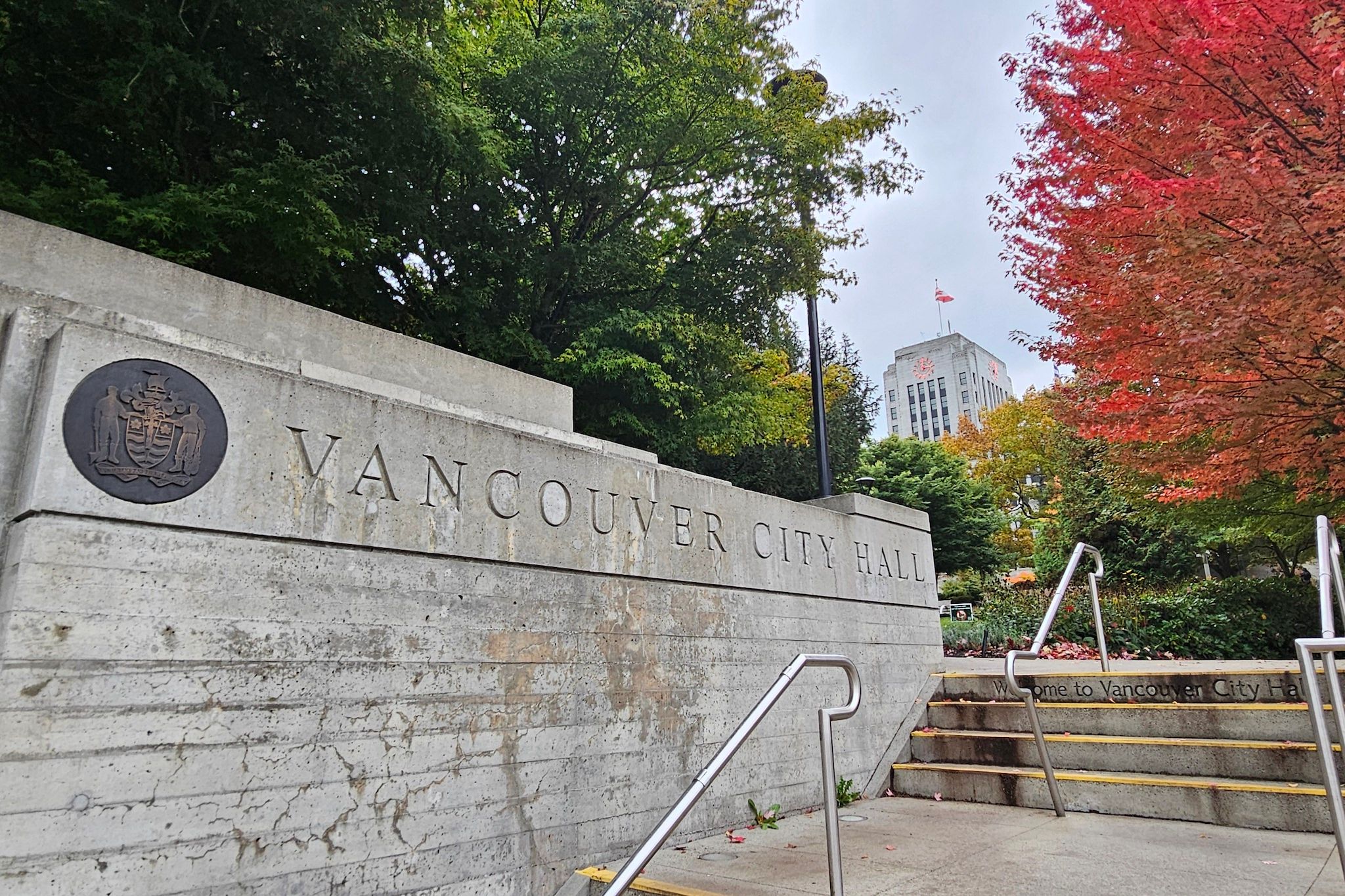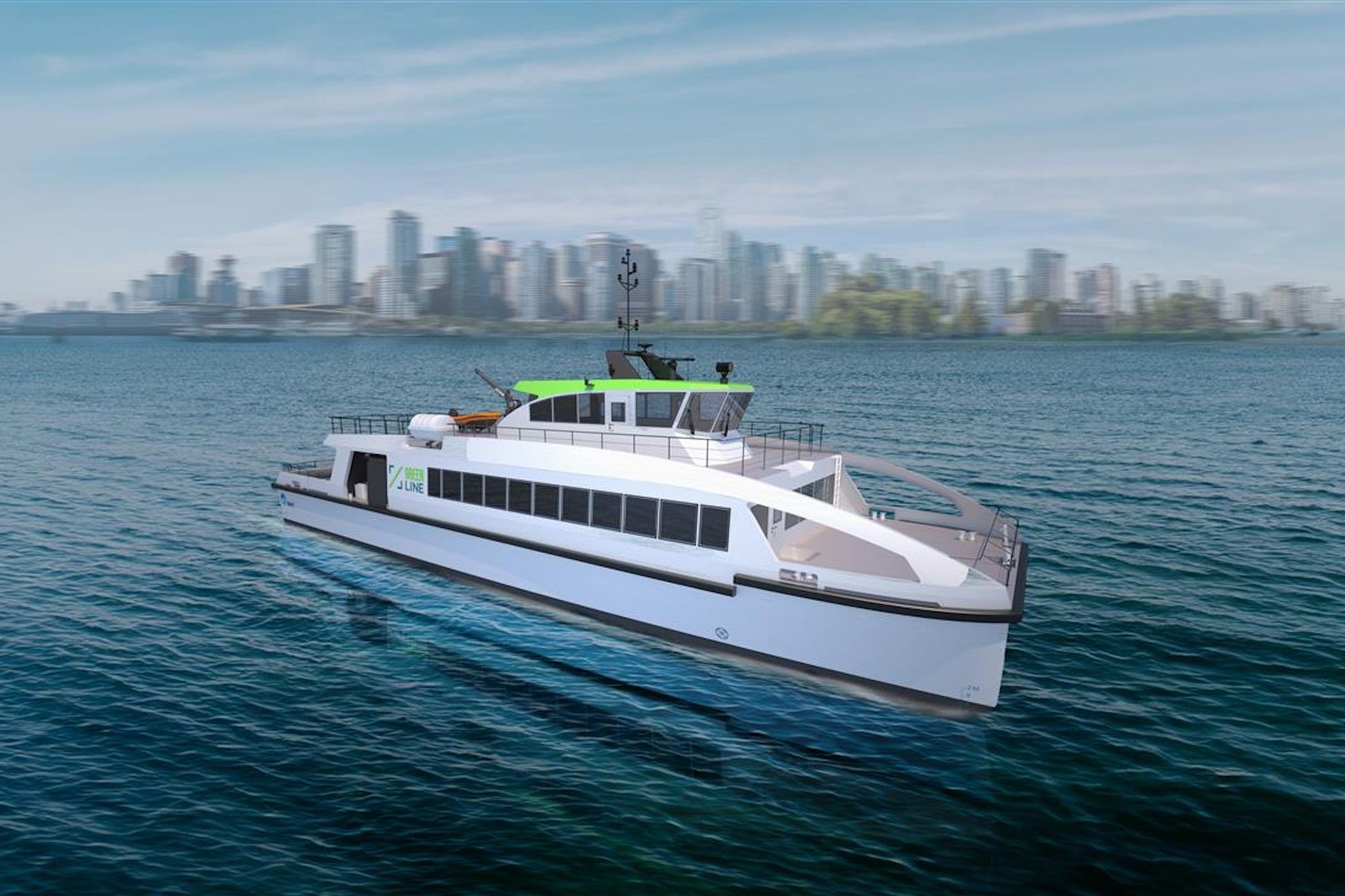1,400 staff with the City of Vancouver asked to return to the office five days a week
The City of Vancouver has ordered roughly 1,400 office-based staff to resume working from the office five days a week, ending highly flexible semi-remote work arrangements that were first introduced at the height of the pandemic.
The new workplace policy was announced to City staff earlier this afternoon, and it specifically impacts exempt or non-unionized employees, including many staff in managerial roles.
This is a new directive being introduced and implemented by the newly appointed City Manager, Donny van Dyk, who first took on the role as municipal government’s leading administrator in early September 2025.
You might also like:
- Opinion: Vancouver's new City Manager faces a defining test for the city’s future
- Vancouver Mayor Ken Sim explores 0% property tax increase for 2026 operating budget
- City of Vancouver faces $22 million annual office rent bill: Will building a new City Hall cut costs?
- Vancouver Park Board vote hits a snag as City inches closer to dissolution
- Richmond mayor warns property owners their titles are at risk after Aboriginal title ruling
- Reconciliation behind closed doors: B.C. government proposes law for secret negotiations between cities and First Nations
Currently, City staff are required to come into their office workplace two days per week. The changes will come into effect on January 1, 2026.
In an internal email to the City workforce, van Dyk said this follows “other leading public and private sector organizations across Canada that have returned to onsite work,” noting that this timeline provides employees with more than two months to adapt.
“Like you, I understand that life requires flexibility. Please continue to be reasonable in occasional situations where you adjust your schedule and work remotely,” he added.
Previously, the planned new approach was to change the policy to have City staff come into the office three days per week, but that was later amended to all five weekdays.
In an interview with Daily Hive Urbanized, Vancouver Mayor Ken Sim expressed his support for the move by the City manager, saying it would help strengthen the City’s workplace culture by encouraging more in-person collaboration among staff.
“WE NEED AN ALL-HANDS-ON-DECK APPROACH”
He believes this approach will lead to greater efficiency and productive outcomes — particularly over the busy year ahead, as the municipal government further prepares with taking the leading role as Vancouver’s local organizing committee for the 2026 FIFA World Cup and as the ABC Vancouver governing party works to advance more of its priorities over the final year of the term.
“We have a lot of pivotal things that are happening in the next year. We have the FIFA World Cup. We have an affordability challenge going on here, and we have an election coming up,” Sim told Daily Hive Urbanized.
“We’re working towards maintaining flexibility and being a great employer, but we need an all-hands-on-deck approach. However, when you don’t have the right communication in place, you have silos and it’s hard to get stuff done at the best of times, so this really addresses it. We’re here to build culture, and the only way you build culture is if you have people interacting all the time. We also have to make sure that we’re working for the benefit of the taxpayers and the residents of Vancouver, and that happens when we’re all together.”
Mayor Sim also believes having City staff together, in person, will build camaraderie, friendships, better enable issues to be solved in real time, and improve the transfer of knowledge between veteran staff and newer team members.
He expects the City Manager will address logistical matters, such as ensuring adequate office desk capacity, amenities, and service levels for the full return to the workplace.
The City has major offices not only within the heritage City Hall building at the West 12th Avenue campus, but also other properties elsewhere within the Central Broadway district and across Vancouver. Many of these off-campus office spaces are privately owned and leased by the municipal government. Renovations are currently in progress for the office space within the City-owned heritage building.
In 2024, the City’s leased office space footprint totalled 378,000 sq ft and the annual lease bill reached $22 million, representing a doubling of the City’s budget allocation for leased office space since 2016.
When asked about how he would respond to an inevitable pushback from some employees against the policy change, the Mayor said, “What we find is people care about the mission of making the city better.”
“With any change that you have in any organization, not just this, there will be some people that don’t agree with it, and there will be some people that it just doesn’t work for. It may not work for some people,” he told Daily Hive Urbanized.
In recent years, made evident in other organizations and businesses, some of the most common reasons staff resist return-to-office policies is because they value the flexibility and work-life balance of remote work, dislike long commutes, and feel more productive at home. Lifestyles have also changed since the pandemic, with some people now living much further away from the office due to the availability of commute-free flexible workplace policies, and foregoing the need to find childcare for their pre-school age children.
Some also see mandatory office attendance as a sign of employer mistrust or a step backward from the latest workplace trends.
At the same time, the City Manager is also rolling out a new “Exempt Voluntary Separation Program” that provides eligible City staff with the ability to retire early or leave the municipal government on their own will. This follows ABC’s direction to cut over $100 million from the City’s annual operating budget in 2026, which has increased enormously from $1.5 billion in 2019 to $2 billion in 2022 and to over $2.3 billion in 2025. Currently, the City employs approximately 9,500 unionized and non-unionized staff.
Early in ABC’s term, Vancouver City Council approved extraordinarily high annual property tax increases recommended by City staff, prompting criticism that Sim and his party were breaking an election promise to rein in municipal spending and improve financial management. For 2026, the ABC majority has directed City staff to implement an annual property tax increase of one per cent to maintain the pace of critical infrastructure improvements, with no further increases for the operating budget.
OTHER MAJOR GOVERNMENTS AND BUSINESSES BRINGING THEIR STAFF BACK TO THE OFFICE
Sim pointed to similar workplace policy shifts being made in other major governments and in the private sector for the same reasons.
This past summer, the City of Ottawa, which is significantly larger than Vancouver’s municipal government, announced all office-based employees will be required to be in the office five days a week, starting in January 2026.
Ottawa’s move followed a call from Ontario Premier Doug Ford, who urged municipal governments in his province to bring their office-based staff back into the workplace on a full-time basis. Ford has already ordered over 60,000 office-based public servants with the Government of Ontario to phase their return to the office, with four days per week starting in November 2025 and then five days per week beginning in January 2026.
Earlier in the summer, Rogers Communications announced its office-based workers would need to come to the office four days per week starting in October 2025 and then five days per week beginning in February 2026.
Some of Canada’s largest banks have already reduced their semi-remote workplace flexibility, with Royal Bank of Canada, TD Bank, and Scotiabank ordering their office-based staff to be in the office four times per week starting this fall.
Ford’s rationale was rooted not only in improving productivity, but also in supporting local businesses — such as restaurants, shops, and other services — and in helping to revitalize struggling downtown areas by restoring the pre-pandemic foot traffic and critical mass of activity once generated by office workers.
Earlier this year, the Downtown Seattle Association (DSA) — the local business improvement organization for the city’s core — said Amazon’s decision to require office-based employees to return five days a week has brought back a level of downtown activity reminiscent of pre-pandemic 2019. Amazon’s global headquarters office buildings in downtown Seattle are the home base for about 50,000 office-based staff.
DSA noted that after three full months of Amazon’s five-day office presence policy changes, downtown Seattle has reached foot traffic volumes not seen since before the pandemic hit, with the increased foot traffic deterring crime from improved visibility, and many businesses seeing a big boost.
Amazon’s five-day office policy applies across all global locations, including its downtown Vancouver offices, which serve as the home base for nearly 5,000 corporate and tech office employees. In recent months, foot traffic in and around The Post office complex and Telus Garden has noticeably increased.
You might also like:
- Opinion: Vancouver's new City Manager faces a defining test for the city’s future
- Vancouver Mayor Ken Sim explores 0% property tax increase for 2026 operating budget
- City of Vancouver faces $22 million annual office rent bill: Will building a new City Hall cut costs?
- Vancouver Park Board vote hits a snag as City inches closer to dissolution
- Richmond mayor warns property owners their titles are at risk after Aboriginal title ruling
- Reconciliation behind closed doors: B.C. government proposes law for secret negotiations between cities and First Nations
https://dailyhive.com/vancouve....r/vancouver-city-hal

Discover the world at Altruu, The Discovery Engine




